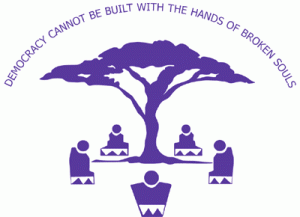The Solidarity Peace Trust urges humane treatment of Zimbabwean Refugees
 The Solidarity Peace Trust condemns the relentless harassment of Zimbabwean refugees in South Africa at a time when Zanu PF is once again terrorising Zimbabweans in some parts of their country.
The Solidarity Peace Trust condemns the relentless harassment of Zimbabwean refugees in South Africa at a time when Zanu PF is once again terrorising Zimbabweans in some parts of their country.
We draw South Africa’s attention to the fact that Movement for Democratic Change (MDC) members and supporters are once again being abducted or arrested – in some cases after being attacked by marauding gangs. In some rural areas, it is alleged that homes are being burnt down, crops destroyed and food aid withheld. Soldiers are alleged to be taking part in the harassment and threats.
South Africans need to be aware of the escalating destabilization that is preventing asylum seekers, refugees and economic migrants from going home. The majority of Zimbabwean exiles would prefer to return to their families and rebuild their lives but they continue to perceive that it is unsafe to do so.
The Trust acknowledges that the South African government has consulted widely with refugee organisations and NGOs and is taking steps to improve the situation. We commend the Department of Home Affairs for becoming more proactive and setting up mechanisms to fast-track the documentation processes.
However, there are still worrying issues that need to be addressed. Members of the South African Police continue to harass, arrest and assault asylum seekers and economic migrants, threatening them with deportation, and in numerous cases demanding bribes.
Although there is currently a moratorium on deportations, the situation could change on 1 August when the deadline for new Zimbabwean asylum-seeker applications and the amnesty period for regularising documentation expires. The Zimbabwean government’s failure to provide passports and other vital documentation continues to stall the process. In April 2009, Human Rights Watch reported that as many as 18 000 Zimbabweans were deported each month, among the highest deportation figures in the world.
The North Gauteng High Court judgment of 11 February, which criticised the practice of arresting and detaining asylum seekers without verifying their status or allowing access to the refugee system, has been widely applauded. We note that the Court also criticised the undue delays in issuing documents under the Refugees Act, the practice of keeping asylum seekers in immigration detention pending the outcome of applications and the re-arresting of detainees upon their release. This makes it possible to get around the 30- day limit of detention without a warrant under the Immigration Act. The Court held the above was unlawful and inconsistent with the South African Constitution.
The Trust supports Lawyers for Human Rights (LHR)’s call on the Department of Home Affairs to immediately release all asylum seekers who are presently being detained, and to revisit its policies regarding immigration detention and its own practices of detaining those seeking asylum protection in South Africa. LHR notes that this is particularly relevant considering the draconian measures which the Department is intent on pushing through Parliament in the new Immigration Amendment Bill.
The Trust also supports Human Rights Watch’s recommendation to the South African government that, in the light of the likelihood of a dramatic increase in Zimbabwean asylum applications following resumed deportations, all necessary steps should be taken to ensure that asylum seekers can easily lodge their claims and be guaranteed protection from police arrest, detention and deportation.
The Trust commends Home Affairs Director General Mkuseli Apleni’s assurance that the government’s aim is not to deport people but to provide those living in South Africa with the ability to do so with dignity.
Medecins Sans Frontieres (MSF) continues to raise concerns about conditions for displaced people in South Africa. In May last year, MSF issued a follow up to their June 2009 report: “No Refuge, Access Denied” . They noted that the humanitarian situation for Zimbabweans and other vulnerable migrants, refugees and asylum-seekers in South Africa remained dire one year after the report and two years after the eruption of the xenophobic violence which killed 62 people and displaced more than 100 000. MSF also highlighted the appalling living conditions of Zimbabweans and other vulnerable migrants who are forced by their need to survive to live in slum buildings such as those located in the inner-city of Johannesburg.
The Trust reiterates Amnesty International’s view that SADC and AU leaders have missed every opportunity to end human rights violations in Zimbabwe and that no meaningful progress has been made in implementing reforms meant to guarantee peace and security in the country. The current upscaling of violence is also not being addressed. It is important that the South African police and the public are aware of this and understand the gravity of the situation.
In conclusion, The Trust stresses the importance of following the teachings of the Bible regarding the hosting of foreigners:
“The alien living with you must be treated as one of your native-born. Love him as yourself, for you were aliens in Egypt. I am the LORD your God.” Leviticus 19:34
BISHOP RUBIN PHILLIP
CHAIRPERSON- SOLIDARITY PEACE TRUST



